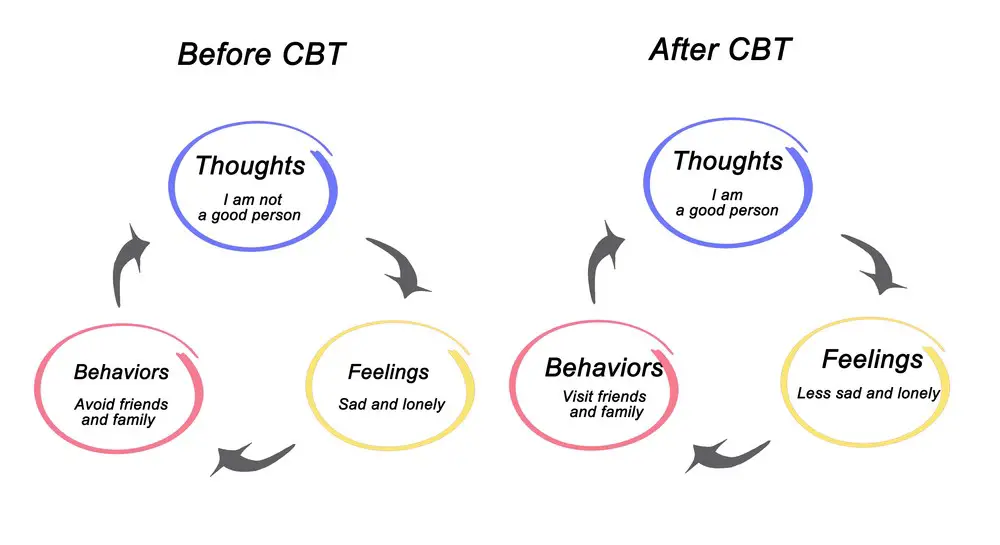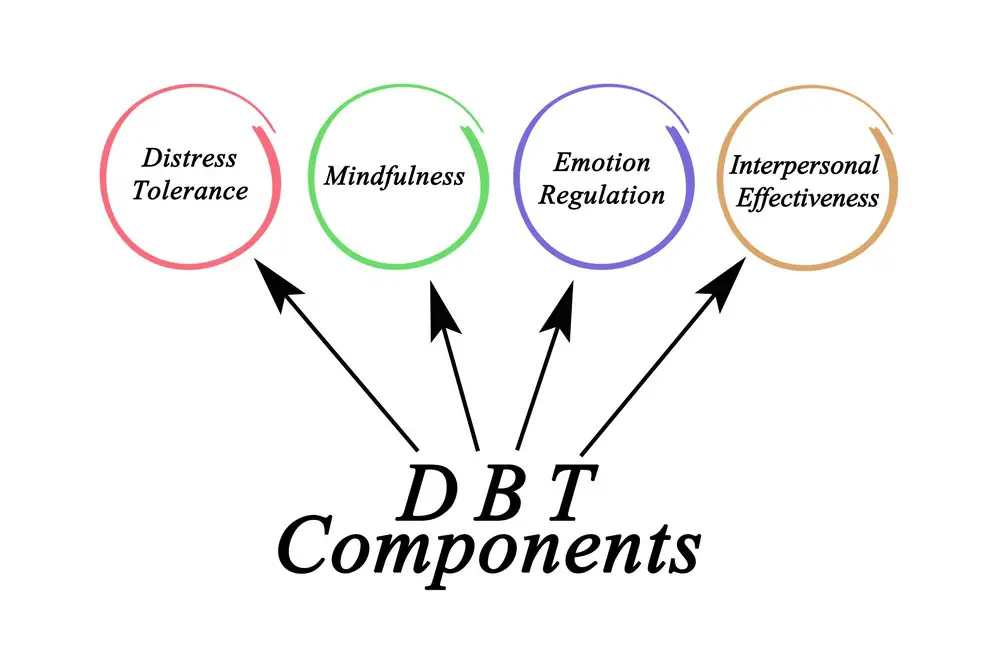As a BetterHelp affiliate, we receive compensation from BetterHelp if you purchase products or services through the links provided
With an increasing awareness of mental health and several therapy approaches to help manage mental health issues, there is a wide variety of therapeutic modalities to choose from.
According to data from the Nation Health Interview Survey, “in 2019, 19.2% of adults had received any mental health treatment in the past 12 months”, so it is clear that therapy is becoming a more commonplace option for individuals.
Therapies have begun to move away from just traditional talk therapy and encompass a variety of different approaches.
Whether you have tried therapy in the past or are looking for a therapist for the first time, it is wise to explore the various types of therapy to find the one that best suits your needs.

1. Cognitive Behavioural Therapy (CBT)
CBT is a psychotherapy approach that helps individuals identify, understand and change underlying thinking and behavioral patterns contributing to their difficulties.
CBT focuses on the interplay between thoughts, emotions and behaviors, helping individuals to become more aware of how these three components affect each other.
This therapy can treat anxiety, depression, eating disorders, addiction, and many other mental health issues.
CBT is typically carried out in a therapist’s office, where the individual and therapist work together over several sessions to help them achieve their goals. However, online therapies are also available in some cases.

2. Dialectical Behaviour Therapy (DBT)
DBT is a cognitive-behavioral therapy approach developed by Marsha Linehan for people with borderline personality disorder who have difficulty regulating their emotions.
DBT combines standard cognitive-behavioral techniques with mindfulness meditation to help individuals build emotional regulation, mindful awareness, distress tolerance, interpersonal effectiveness, and self-validation skills.
DBT is usually conducted in a group setting, which involves teaching and exploring how to apply these skills in daily life.
3. Interpersonal Therapy (IPT)
IPT is an evidence-based psychotherapy approach developed by Gerald Klerman and Myrna Weissman in the 1970s as an effective treatment for depression.
It focuses on improving interpersonal relationships by identifying communication patterns and helping individuals learn more effective ways to relate to others.
Individuals become more aware of their thoughts and feelings regarding their relationships with others. Through this awareness, they learn to manage their emotions and develop more effective communication skills.
IPT is typically carried out in individual therapy sessions but can also be used in group settings.
4. Acceptance and Commitment Therapy (ACT)
ACT is a form of cognitive-behavioral therapy closely related to mindfulness principles. It encourages individuals to accept their complex thoughts, feelings, and experiences without judgment or resistance to move forward with their lives rather than trying to change or eradicate them.
Mindfulness exercises, acceptance statements, and commitment strategies help individuals gain insight into their current values and take action on what matters most to them in life.
ACT is usually conducted in individual and group therapy sessions, online, or in workshops.
5. Eye Movement Desensitization & Reprocessing (EMDR)
EMDR is a type of psychotherapy that uses bilateral stimulation, such as eye movements or tapping, to desensitize individuals from traumatic memories or experiences causing distress.
The goal of EMDR is not only for the individual’s immediate relief but also for long-term healing.
Making changes at the unconscious level allows the patient to better cope with future stressors without extreme emotional reactions being triggered each time they are exposed to similar situations or memories as before.
EMDR is typically conducted in one-on-one sessions with a trained therapist but can also be done online.
It usually takes several weekly sessions before the individual understands how to manage their reactions to negative events and memories in the future.
6. Psychodynamic Therapies
Psychodynamic therapies are based on psychoanalytic theories developed by Sigmund Freud in the late 19th century.
They look at how past experiences influence present behavior, especially unconscious desires or conflicts that may not be apparent immediately when looking at someone’s thoughts or actions alone but are only understood through this lens.
Psychodynamic therapies are generally carried out in one-on-one sessions, and techniques such as free association, dream interpretation, and transference help the individual to gain insight into their current struggles.
It is considered a longer-term approach than other types of psychotherapy, with many individuals requiring several months or years of therapy before seeing the full benefits.
7. Art Therapies
Art therapies are a form of psychotherapy that use various art-based activities, such as drawing, painting, music, and drama, to help individuals gain insight into their emotions and behaviors.
It is an effective treatment for many conditions, such as anxiety, depression, trauma, and addiction, as it helps individuals express themselves in ways they may not be able to in traditional talk therapies.
Art therapy is usually conducted in a group setting, with therapists guiding the participants through activities and helping them interpret their art pieces. It can also be done individually or online as well.
The length of treatment depends on each individual, but it generally takes several sessions before individuals start to see changes in their emotional and mental well-being.
But How Do You Make a Decision Choosing Therapy?
The decision about what type of therapy is best for you can be overwhelming, but there are a few key factors to keep in mind when making your choice.
Of course, you will need to consider the mental health issue you are dealing with, as some forms of therapy will be more effective than others in treating specific problems.
For example, if you are dealing with depression, cognitive behavioral therapy may be an excellent option for you. On the other hand, if you are struggling with trauma or addiction, EMDR may be better suited to your needs.
It is also essential to consider the therapeutic environment that will work best for you. Are you more comfortable in individual or group settings? Would you prefer to do an online therapy program?
No matter what type of treatment you choose, it is essential to know that some forms of psychotherapy are more effective when combined with other treatments, such as medication or lifestyle changes.
Talking to your doctor or mental health professional will be the best way to determine which direction is best for you.
Once you have selected the type of therapy that is right for you, it is essential to stick with it and be active in your treatment.
Psychotherapy can take time to be effective, but with dedication and effort, it can help individuals make positive changes and develop healthier ways of coping with their mental health.

Final Thoughts: Choosing Therapy For a Better You
Psychotherapy is a powerful tool that can help individuals gain insight into their thoughts and emotions, address mental health issues, and learn healthier ways of dealing with life’s challenges.
When choosing therapy, it is essential to remember the type of mental health issue you are dealing with, as some therapies will be more effective than others.
No matter what treatment you choose, it is essential to remain dedicated and active to get the most out of therapy.
FAQ
- How Having Cybersecurity Protection Helps You Relax - April 25, 2025
- 8 Reasons Why Spending Time Outside Calms You Down - April 25, 2025
- 5 Helpful Ideas for Managing Stress During a Plumbing Emergency - April 24, 2025
This site contains affiliate links to products. We will receive a commission for purchases made through these links.



